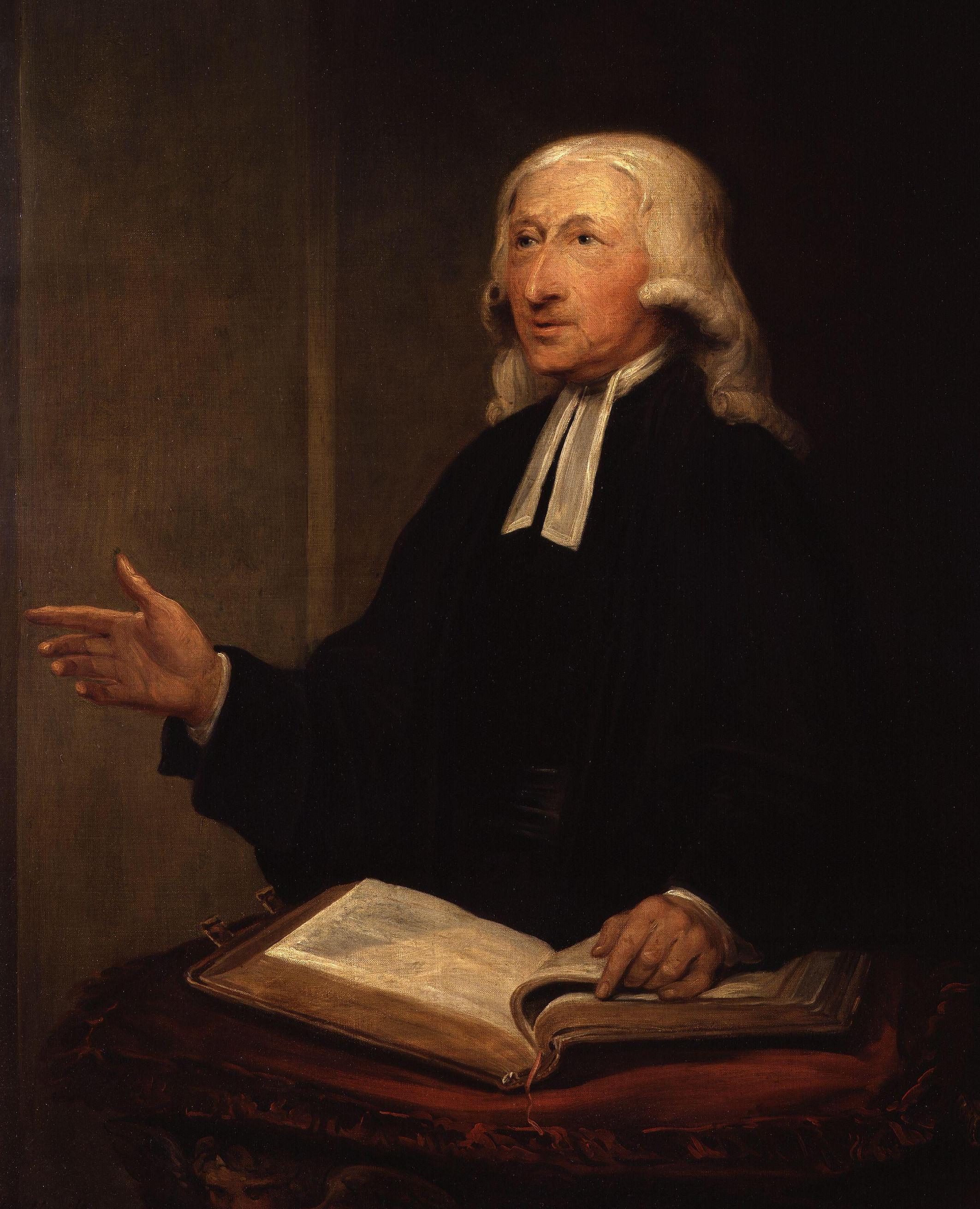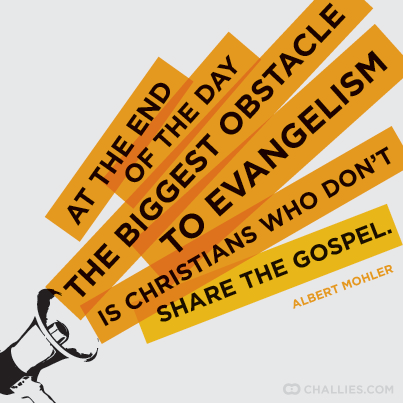The life and thought of a church is always larger and deeper than its official documents – H. B. Workman
In the Old Testament, periods of spiritual decline in the days of the judges and kings were always followed by seasons of quickening (Ezra 7:10). Revival in the New Testament periods is all about Jesus (Is 61:1-3). After days of faithful and continuous prayer, the church was born in revival fire at Pentecost (Acts 1:14, 2:1-4). Revival continues to be through the Holy Spirit in a period of decline. In church and revival history, there have been different revival movements that shaped the world. A foretaste of time to time missional events throughout history occurred on the Day of Pentecost when 3000 Jews came to Jesus Christ (Acts 3). This first Great Revival continues to inspire a number of notable revivals. In the 15th Century during the time of Martin Luther, Reformation that restored Jesus led to one of the greatest periods of world’s renaissance. Salvation in Jesus Christ was no longer a problem to be achieved but a gift to be received especially in a period Europe was transformed out of the dark ages.
Methodism, as most sustained evangelical worldwide faith and move of God that changed as much as United Kingdom, America, Africa, other parts of Europe, India and other countries was the Great Awakening. It started in 1729 at Lincoln College, Oxford, where John Wesley and his brother Charles began the Holy Club. Others like George Whitefield later joined and lived by a ‘method’ of doing many religious exercise a day, speak to others about Jesus, and visit to the sick among others. After John Wesley received Christ in 1738, he went to join Whitefield in open-air preaching and resultantly, Methodist revival was born in the power of the Holy Spirit, the “immediate cause of all holiness” in the believer. In the process of salvation, Wesley understood the Holy Spirit to be “God’s gracious empowering presence restored through Christ.”[1] It is this Spirit that enlightens our understanding, rectifies our will and affections, renews our nature, unites us with Christ, assures our adoption as God’s children, guides our actions, purifies and sanctifies our souls and bodies, for the purpose of “full and eternal enjoyment of God.” For Wesley, the Spirit is likened to the “breath of God” through the process of “spiritual respiration” in which the “life of God in the soul” leavens the Christian life. Methodism first set out in cooperation with the Spirit’s life, giving breath through methodical practice of the means of grace as the “ordinary channels” by which ‘the Spirit conveys preventing, justifying, and sanctifying grace.’[2]
Wesley in his journal for the 1st January 1739 explained that, in their love-feast in Fetters Lane, “About three in the morning as we were continuing instant in prayer, the power of God came mightily upon us, insomuch that many cried out for exceeding joy, and many fell to the ground. As soon as we were recovered a little from that awe and amazement at the presence of His Majesty, we broke out with one voice, “We praise thee, O God we acknowledge thee to be the Lord.” From Whitefield’s testimony about the love-feast “It was a Pentecostal season indeed, sometimes whole nights were spent in prayer. Often we have been filled as with new wine, and often I have seen them overwhelmed with the Divine Presence, and cry out, ‘Will God, indeed, dwells with men on earth? How dreadful is this place! This is none other than the house of God, and the gate of heaven!’ “
The British Great Awakening began on the 17 February 1739 when George Whitefield preached to the colliers at Kingswood near Bristol in the open-air as there was no church or school in this area. John Wesley preached at Blackheath in mid-June 1739 where twelve to fourteen thousand people had assembled. At 7am on a Sunday John Wesley preached in Upper Moorefield to six or seven thousand people, and at 5pm to fifteen thousand at Kennington Common. The next Sunday Charles began field preaching, having been driven from his curacy at Islington by the action of his churchwardens.”
John Wesley began preaching Methodism at Bristol in April 1739 and the first Methodists conference was held in 1744. Wesley was banned from many Church of England pulpits for his fiery sermons, preaching “justification by faith.” He rode around the country preaching and revivals broke out everywhere. Methodism remains the most sustained revival in history because of Wesley’s organisational structure which gathered the converts together, disciple them and helped them to grow. Whitefield was a better preacher with many people given their lives to Christ but there was no follow up,[3] on the other hand, Wesley developed and disciple his converts and the legacy abides today beyond Methodism.
The story and testimony of Methodism, a global family of churches which has established itself in every quarter of the globe are with special evangelical prominence in Africa, Asia, United Kingdom, and United States of America.[4] Today, Methodism remains one of the largest Protestant churches in the world ‘whose indirect influence has been almost as great as its direct – is manifestly a fact in the sphere of the spiritual which cannot be ignored even by those who would on a priori grounds refuse to recognise its apostolic origin, or its ecclesiastical claims.’[5] Through Methodism as the missional outcome of the eighteenth century, ‘we see the older systems crumbling away under the dissolvent action of forces created and fed by the vanishing age.’ It was the signs of a fundamental reconstruction, culminating in Methodism, the most missional phenomena of the century. Methodism obtained her supreme missional advantage and spiritual revival based on the ground already occupied by ‘some medieval order of monks or friars, with the parent Church.’[6] According to Workman, ‘whether from the latent forces within herself or by the folly or apathy of the bishops, Methodism was driven out of the Anglican Church.’
In the hour of sensual indifference and what Workman called, ‘hard materialism and contented blindness, England was saved by one man, “A mighty leader who brought forth water from the rocks to make a barren land alive again.” In John Wesley the opportunity found the hero.’ In an age of indifference, Wesley manifested ‘the quantity of good that may be done by one man if he will make a business of it.’
Methodists were evangelists in obedience to God’s Great Commission and faithfulness to Wesley’s standing instructions and order to his leaders, “You have nothing to do but save souls. Therefore spend and be spent in this work … it is not your business to preach so many times, and to take care of this or that Society, but to save as many souls as you can.” The Methodist Revival, otherwise known as the “British Great Awakening” or the “Evangelical Revival” was probably the greatest revival to affect Britain in terms of the impact that it made on the nation. Mathew Backholder in his book “Revival Fires and Awakenings’ wrote, ‘Many historians believe that it was because of this move of God that Britain did not have a revolution, a bloodbath, as had happened during the French Revolution of 1789.” The background and storyline before the Great Awakening was that, the nation, Great Britain was in a desperate state and the church was just as bad. Steve Harper wrote, ‘by 1738, the Church of England had largely abandoned direct ministry to the masses, preferring to concentrate on a rather elite church for a generally privileged clientele. This is one of the reasons Wesley wrote that he “consented to be more vile” when George Whitefield invited him to preach in the open air in Bristol. At that point in his life, he was a product of the ministerial training of his age, viewing the work of the church to be largely within its own walls and expressed in its in-house liturgies. Field preaching and other accompanying expressions changed all that for John Wesley, moving him to see that the gospel was for everyone.’[7]
Edward Miller in his book, John Wesley: The Hero of the Second Reformation wrote ‘When the Church fails in her mission; the whole of society becomes corrupt.’[8] On the transformation of Great Britain through the Great Awakening, Isaac Taylor said, “No such harvest of souls is recorded to have been gathered by anybody of contemporary man since the first century;” and on the grounds of “expensive and adventurous Christian philanthropy,” he held that the founders of Methodism had no rivals. C. Grant Robertson, in his book, England under the Hanoverians (1911) wrote: ‘Methodism and the French Revolution are the two most tremendous phenomena of the century (eighteenth century). Wesley swept the dead air with irresistible cleansing ozone. To thousands of men and women his preaching and gospel revealed a new heaven and a new earth; it brought religion into soulless lives and reconstituted it as a comforter, an inspiration and a judge. No one was too poor, too humble, too degraded, to be BORN AGAIN and share in and to attain the blessed fruition of God’s peace.’[9]
Indeed, ‘Wesley wrestled with the evil of his day and proclaimed the infinite power of a Christian faith based on personal conviction, eternally renewed from within, to battle sin, misery and vice in all its forms. The social service that he accomplished was not the least of his triumphs. It is certain that into the moral fibre of the English people, even in the classes most anxious to repudiate the debt, were woven new strands by the abiding influence of Methodism…” The missional greatness of Wesley could be found in the organised millions of adherents of the Methodist Church among the English-speaking races of all land. Southey in 1818 considered Wesley as ‘the most influential mind of the last century.’ Gladstone in 1879 described Wesley as “that extraordinary man whose life and acts have taken their place in the religious history, not only of England, but of Christendom.” The verdict of one of the foremost scholar of Germany was that Wesley ‘… is without a peer among revival preacher in any age.’ On Wesley, Cornelius de Witt said, “If the England of today no longer resembles the England of the eighteenth century, it is mainly due to him.” [10]
The first Bishop of Liverpool, J. C. Ryle, from the nineteenth century said, “These times were the darkest age that England has passed through in the past three hundred years. Anything more deplorable than the condition of the country, as to religion, morality and high principles, it is very difficult to conceive.” British Prime Minister, David Lloyd George on the 20 June 1922 said, “I come from a country (Wales) that owes more to the Methodism Movement, of which Wesley was the inspirer and prophet and leader, than to any other movement in the whole of its history. He was undoubtedly the greatest religious leader the Anglo-Saxon race ever produced, and the movement on which he was the leader, probably the greatest religious movement in the past 250 years at least. Its influence was probably greater than even its direct influence.”’[11] Despite his marital challenges, the extraordinary life and ministry of John Wesley coupled with an incredible missional output till his death at the age of 88 years in 1791 is aptly summarised in the Liverpool Mercury April 1883:
‘It is delightful to see Wesley when entering his 86th year, setting down the principal reasons why it came about – that under the Divine Providence, he was able to accomplish the work to which he had set his hand. He gives the first place to his practice of constant exercise and frequent change of air. He next adverts to the fact that he had never lost a night’s sleep – sick or well, on land or at sea – since the day he was born. He could always sleep when he wanted; “I call it and it comes, day or night,” says he. Then there was the following strange rule; – For more than 60 years he rose at four in the morning!’ Methodism, as a revival movement most sustained in history is founded on Wesley’s endurance as a key figure for contemporary Christians based on his emphasis on outdoors preaching, small group formation, particularly the class meeting. The propriety of Wesley’s advice was based on his insistence that class meetings were essential to the revival. According to Wesley, “Establish class-meetings and form societies wherever you preach and have attentive hearers; for, wherever we have preached without doing so, the word has been like seed by the way-side.’ The establishment of class meeting became a means of grace, enabling people and establishing ‘permanent and Holy churches over the world.’
Methodism remained the most sustained revival in history based on Wesley’s Scriptural holiness fidelity. His passion and seriousness over doctrine, spirit and disciple was behind the formation of Methodism as a revival and renewal movement. The early Methodists knew what they believed, practised, sang, and obeyed.[12] It was not ‘mere head knowledge, rather the religion of the heart, characterized by the work of the Holy Spirit. And through it all Methodists organized their lives in very disciplined ways that led to real personal transformation and societal impact.’ Drawing upon the wisdom of John Wesley who pioneered a world-changing movement of mission-shaped disciples, with the principles of longing for more of God, seeking Him through the spiritual discipline, and helping one another through small group fellowship, Methodism with its missional DNA remain the most sustained revival in history.[13] Wesley’s missional and dynamic threefold vision and focus – Doctrine, Spirit, and Discipline continue to shape, influence and breathe new life into the global Church’s renewal and revival. The seed of Wesley’s threefold visions and its dynamic DNA Bible-based inspires experiential faith.
Methodism was born in a university but ‘did not set out to discover buried truth, but to live out a forgotten life.’[14] This life is marked by an acceptance of the doctrines of historic Christianity. Methodists are Holy Spirit people hence, the ‘Methodist Revival was a Spirit-born resurgence of scriptural Christianity.’ The first Methodist Society was formed in London in November of 1739. Wesley carefully defined the purpose of the society as “a company of men having the form and seeking the power of godliness, united in order to pray together, to receive the word of exhortation, and to watch over one another in love, that they may help each other to work out their salvation.”[15] The terms of membership is: “a desire to flee from the wrath to come and to be saved from their sins,” with aim that evangelical faith should manifest itself in evangelical living. The universality of the Gospel-call is attributed largely to the influence of Methodist teaching. The Methodist doctrine of the Atonement which is Arminian and Evangelical ‘proclaims that religion is the individual consciousness of relation to God, and that this relationship is the result of personal appropriation of, or trust in, Jesus Christ and not the outcome of organisation or the gift of any priesthood.’ [16]
Methodism as the most sustained revival in history is counter-cultural to any tampering on this Gospel-call as fundamental truth.[17] Methodism lays its utmost stress and consciousness ‘to its preaching its greatest power.’ This is done through ‘the explanation of its fervid evangelistic appeals, and lies at the root of its special institution of the class meeting. For Methodism to cease from the proclamation of this doctrine would be to deny the grounds of her existence.’[18] Methodism doctrine of Assurance points to the personal consciousness of relationship to God through Jesus Christ. According to Workman, ‘in the eighteenth century Wesley’s formulation of Assurance was looked upon as a dangerous innovation … we can see that doctrine of Assurance is in reality the appeal to experience. This is one of the fundamental contributions of Methodism to the life and thought of the Church and one of the grounds of her own existence.
The externality of Methodism upon Christianity as the personal consciousness of relationship to God is the Methodist doctrine of conversion, that is, a present conscious life in Christ. The Methodist doctrine of holiness or “perfect love” is also a consequence of Wesley’s appeal to experience and not just a theory. Beyond the hard words against theology of Methodism, as narrow, illiberal and one-sided, Methodism remains the dynamic of a living faith, hence, the ‘insistence upon certain doctrines that seemed to be fundamental- the depravity of human nature, the need of conscious faith and definite conversion, the necessity of sanctification after justification, the witness of the Spirit.’[19] Methodist doctrines are Bible based and inspired by ‘the power of the Holy Spirit to confirm the faith of the believer and transform his personal life; by insistence that the heart of religion lies in personal relationship with God.’[20] Reuteler explained that, ‘the doctrines of the evangelical faith which Methodism has held from the beginning and still holds are based upon the divine revelation recorded in Holy Scriptures. Methodism acknowledges this revelation as the supreme rule of faith and practice.’ Wesley’s definition of the witness of the Spirit is another major reason why Methodism remained the most sustained revival in history. According to Wesley, based on Romans 8:15-16, he defined the witness of the Spirit as: “an inward impression on the soul of believers, whereby the Spirit of God directly testifies to their spirit that they are the children of God.” Salvation is first personal before corporate, ‘a person must ultimately believe the Good News for himself or herself; no one could be in relation to God for another.’
Wesley had no intention to separate from the Church of England but the parish system ‘was incapable of adjustment to his plan of free evangelism and lay preachers.’ This was followed in 1744 when Wesley held the first conference of his preachers as the governing body of the Methodist societies which was given a legal constitution in 1784. Methodism broke away from the Church of England in 1795, four years after Wesley’s death. The movement spread like fire ‘seized upon the emotional and spiritual conscience that Protestant orthodoxy neglected. It revived the doctrines of grace and justification and renewed the tradition of moral earnestness, which had once appeared in Puritanism but which had temporarily faded during the reaction against Puritanism in the middle and late 17th century.’[21]
Methodism remains the most sustained revival in history through the class-meeting recognised by Wesley as “unspeakable usefulness” introduced in 1742. The classes were rather larger in size than the bands and involved every member of the society grouped according to their marital status. Their original purpose of the class system was to encourage Christian stewardship and to watch over the souls of the brethren. The class system secured discipline as well as providing fellowship and pastoral care. Christian education gained a new dimension with the introduction of Sunday schools. They were started in 1769 by a Methodist, Hannah Ball, and then developed and popularized by Robert Raikes, an Anglican layman.[22] Discipline in Christian life remains another reason why Methodism remains the most sustained revival in history. The link between Christian doctrine and Christian living is a constant motif of Methodism. The good works through the means of grace with the coherence of faith tells how ‘ministries of love form the discipline of Wesleyan spirituality and Christian discipleship.’
Wesley’s prophetic words near the end of his life warned that the greatness of Methodism as a most sustained revival in history is conditional. Wesley said, “I am not afraid that the people called Methodists should ever cease to exist either in Europe or America. But I am afraid lest they should only exist as a dead sect, having the form of religion without the power. And this undoubtedly will be the case unless they hold fast the doctrine, spirit, and discipline with which they first set out.’ The question is, is Methodism today fulfilling Wesley’s prophetic concern, debating endlessly about the form of our religion, while neglecting the power of Grace?[23] Have we, indeed, let loose of the doctrine, spirit, and discipline of our tradition? Have we become a religious system? Following different schisms after the death of Wesley, many that grew up had at best the “form of religion without the power,” no longer doctrinally clear, Spirit-led, or disciplined. Different form of Methodism developed shaped by cultural bias and values.[24] Wesley’s mission of scriptural holiness became head knowledge and no one ever accused us of Holy Spirit “enthusiasm” again. The corollary of easing the proclamation of the doctrine and denial of the missional grounds of Methodist existence ‘had been fudging what it meant to be Methodist, for the sake of popularity and cultural accommodation.’ The laxity in doctrine, spirit, and discipline and our concurrent breakdown, divisions and decline did not happen overnight. We need repentance. We must not wait until we find ourselves, like the prodigal son, at the end of our attempts to achieve what we think we want.
In the 1900s, at a time when the church had become powerless and operated like a religious system, there began the experience of the reality of God’s power through the Holy Spirit. Examples were the 1842 Agia Revival, Badagry, 1859 Ulster Revival, Welsh revival in 1904, and Azusa Street outpouring in 1906, Oke-Oye, Ilesa 1930. These were the inspirations behind the start of the New Generation churches and Pentecostal movement. We also remember the Toronto Outpouring in 1994, referred to as the “Father’s Blessing” that started in a small church in Toronto led by John and Carol Arnott.[25] The most important immediate precursor to Pentecostalism was the holiness movement that issued from the heart of Methodism during the 18th century. The Pentecostals inherited from Wesley the idea of “second blessing” subsequent to salvation, an experience of “entire sanctification,” “perfect love,” “Christian perfection,” or “heart purity.”[26] Methodism’s fundamental conviction – the personal, conscious appropriation of the Life and Passion of the Risen Christ are sustained and practised across churches today with form of religion with power. The sorry case today is the decline of Methodism. Using a phrase from William Butler Yeats’ poem, ‘the falcon can no longer hear the falconer; Things fall apart; the centre cannot hold; Mere anarchy is loosed upon the world.’ The falcon can no longer hear the falconer describes Methodism’s decline and divisions today. In Methodism, are we breaking up the seal of our evangelical doctrine, spirit, and discipline with our own hands? Are we cancelling our firmest security, and, as much as in us lies, reverse our own title to eternal life? The Good news is that, Wesley’s threefold vision and focus remains the secret behind many healthy and growing churches today. God is calling Methodist people for a fruitful future, to “come to ourselves” as the prodigal did, repent, through the discipline with which we “first set out,” in order to recover the doctrine and spirit (which was the anointing of the Holy Spirit) with which we “first set out.”
[1] Randy L. Maddox, Responsible Grace: John Wesley’s Practical Theology (Nashville: Kingswood Books, 1994), p. 120.
[2] Sermon: “The Means of Grace” II.1 (Works 1:381).
[3] Marcel, Michael, Prepare for Revival (London: UK Wells, 2012), p. 28
[4] Abraham, J WIlliam and Kirby, E James, (eds), The Oxford Handbook of Methodist Studies (Oxford: Oxford University Press, 2009), p. ix.
[5] Workman, H. B. Methodism (Cambridge: University Press, 1912), p. 2
[6] Workman, Methodism, p, 6
[7] Harper, Steve, John Wesley: “Theologian of the Gaps” in Covenant Discipleship Quarterly Fall 2003, Vol. 18/No.4
[8] The Methodist Revival (liverpoolrevival.org.uk)
[9] Workman, Methodism, p. 26
[10] Workman, Methodism, p. 28
[11] The Methodist Revival (liverpoolrevival.org.uk)
[12] Fatokun, Jide, Methodist Witness in Nigeria (Ibadan: Positive Press, 2009), pp. 16-24
[13] Inspire, developing the spiritual life of mission-shaped disciples, Inspiremovement.org
[14] Workman, Methodism, p. 109
[15] Reuteler, James, The Essentials of Methodism (Colorado: Covenant Bible Studies, 2013), pp. 40-41
00 Methodist Essentials (reuteler.org)
[16] Workman, Methodism, p. 112
[17] Okegbile, Deji, Stop the Funeral: Reverse Methodist Decline (London: Supertec Design, 2017), pp. 6-7, 33-38
[18] Workman, Methodism, p. 112
[19] Workman, Methodism, pp.114-117
[20] Reuteler, The Essentials of Methodism, p. 15
[21] Reuteler, The Essentials of Methodism, p. 18
[22] Wood, Skevinton, The Methodists, Eerdman’s Handbook to the History of Christianity (Grand Rapids: WM. B. Eerdman’s Publishing Company, 1977), pp. 451, 455
[23] Okegbile, Deji, Methodist Pentecost Again! Wanted 100 Preachers for Revival of Holiness (London: SADL, 2018), pp. 8-11
[24] Mbang, Sunday, The Bible and its Interpretation (Lagos, Wesley House, 2016), pp. 73-74
[25] THE 3 REVIVALS THAT SHAPED OUR WORLD – Global Mission Awareness











Recent Comments